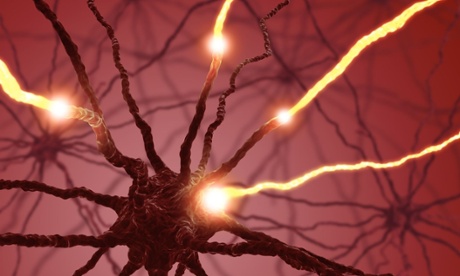Australian researchers who made the discovery will now look at repairing the fault, which occurs during pregnancy

The mutation of a gene vital for foetal brain development could be responsible for impaired mental function in children born with intellectual disabilities, Australian researchers have discovered.
The gene, TUBB5, is critical for building connections between nerve cells of the brain involved in speech, sight, co-ordination and higher level cognition, researchers found.
It acts as a type of scaffolding inside neurons, enabling them to shape their connections to other neurons, said lead researcher Dr Julian Heng from the Australian Regenerative Medicine Institute at Melbourne’s Monash University. When a mutation occurs these connections cannot be properly made.
“What we have been able to do is clarify the role of TUBB5 in how neurons connect and its importance to a healthy, functioning brain,” Heng said.
“This is only the beginning of our journey into understanding the importance of scaffolding proteins and their role in helping neurons make brain circuits.”
The discovery may have implications for prenatal testing and for genetic counsellors who may be able to test patients for TUBB5 mutations, he said. But he said parents could not pass the faulty gene on to their children and the mutation occurred during pregnancy. The cause is unknown.
Heng’s research will now focus on how TUBB5 mutations might be targeted and potentially repaired.
The discovery, published on Wednesday in the journal Human Molecular Genetics, builds on previous research from Heng’s team, which looked at three unrelated patients with microcephaly, a rare brain disease in children.
“They all had intellectual disabilities and they all had one other thing in common – they all encoded a genetic mutation to TUBB5,” Heng said.
His latest research clarifies the role of this mutation in brain circuits and may have implications for other developmental conditions such as autism or schizophrenia.
Figures from the Australian Institute of Health and Welfare estimate that more than half a million Australians have an intellectual disability.
The president of the Australasian Society for Intellectual Disability, Dr Angus Buchanan, said most of those were born with it, though it often was not detected until children failed to meet developmental milestones such as in speech and walking.
“I think this new research has the potential to provide more information to some people with intellectual disabilities and their families,” he said.
“But intellectual disabilities include a whole range of conditions with a range of potential causes.
“Some people may find it helpful to know of a potential cause, but others prefer not to focus on that because regardless, they will still be living with an intellectual disability.”
